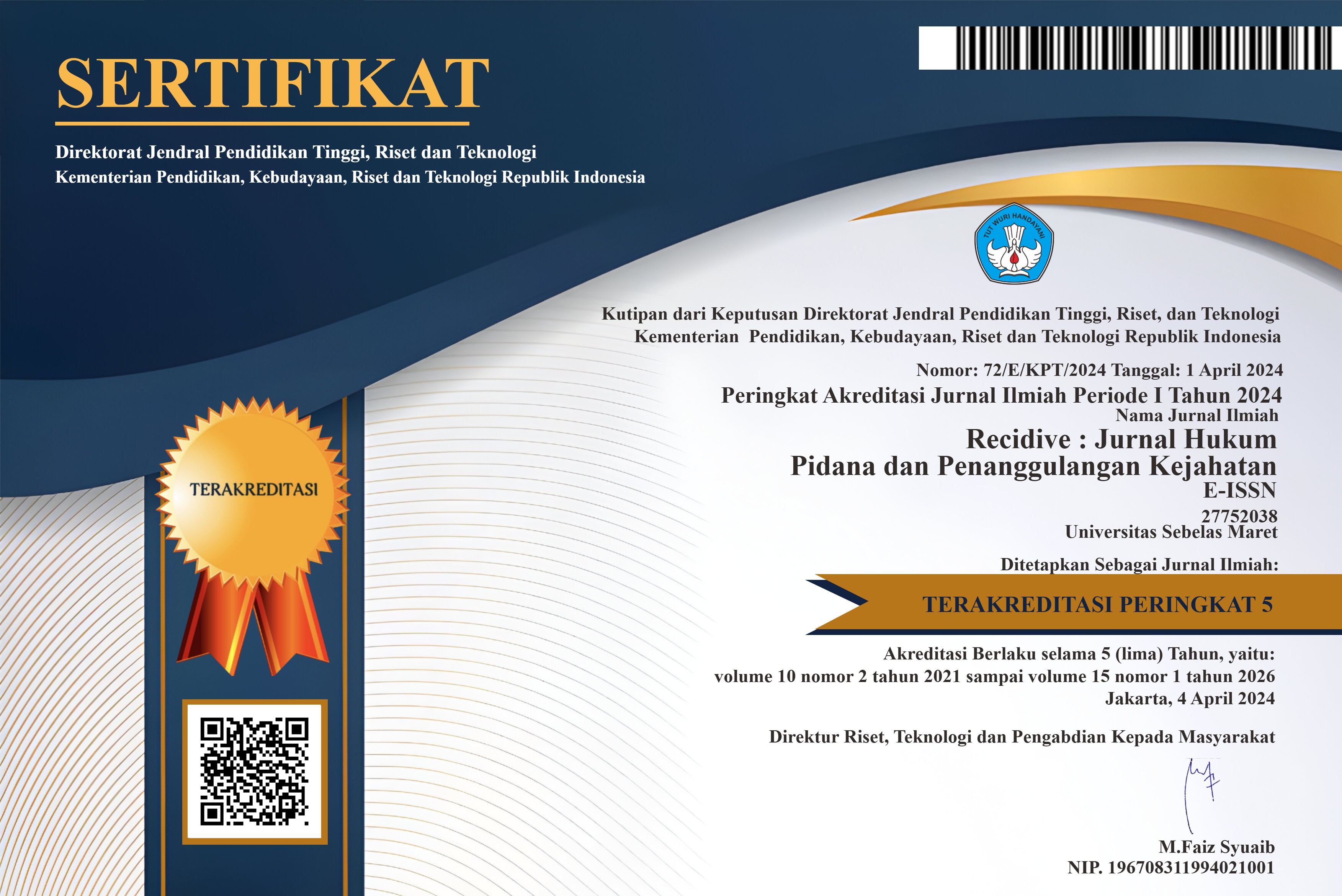PENYELESAIAN PERKARA ANAK DALAM BENTUK RECIDIVE (STUDI PERBANDINGAN ANTARA INDONESIA DAN FILIPINA)
Abstract
Abstrak
Penelitian ini bertujuan untuk mengetahui penyelesaian perkara Anak dalam bentuk recidive dengan cara membandingankan Undang-Undang Nomor 11 Tahun 2012 tentang Sistem Peradilan Pidana Anak dengan Republic Act 9344 sebagai Undang-Undang anak di Filipina. Penelitian ini merupakan penelitian hukum normatif yang bersifat preskriptif. Pendekatan yang digunakan penulis adalah pendekatan perundang-undangan, perbandingan, serta konseptual. Teknik pengumpulan bahan hukum yang dilakukan dengan studi kepustakaan. Teknik analisis bahan hukum adalah analisis hasil penelitian dan pembahasan dengan menggunakan teori keadilan restoratif. Hasil penelitian ini menunjukkan perbandingan penyelesaian perkara Anak dalam bentuk recidive antara Indonesia dengan Filipina. Peraturan diversi di Indonesia tidak dapat mengupayakan anak yang melakukan pengulangan tindak pidana (recidive) yang mana hal tersebut mencederai prinsip nondiskriminasi, sementara dalam peraturan diversis di Filipina mempunyai cara tersendiri dalam menangani Anak yang melakukan pengulangan tindak pidana (recidive). Indonesia dapat mengadopsi dan mereformulasi ulang peraturan mengenai recidive anak agar keadilan restoratif dalam proses diversi di Indonesia dapat terwujudkan.
Kata Kunci: Diversi, Anak, Recidive, Keadilan Restoratif.
AbtractThis research aims to determine the settlement of juvenile cases in the form of recidive by comparing Law Number 11 of 2012 on the Juvenile Criminal Justice System with Republic Act 9344 as the Juvenile Law in the Philippines. This is a normative law research that is prescriptive. The approach used by the author is a legal, comparative, and conceptual approach. Techniques of collecting legal materials performed with literature study. The technique of analysis of legal materials is the analysis of research results and discussion using the theories contained in the literature review. The results of this study show a comparison of the settlement of Anak cases in the form of recidive between Indonesia and the Philippines. Diversion regulations in Indonesia do not prosecute children who commit repeat offenses which violates the principle of nondiscrimination, while diversification regulations in the Philippines have their own way of dealing with children who commit repeat offenses. Indonesia can adopt and reformulate regulations on child recidivism so that restorative justice in the diversion process in Indonesia can be realized.
Keywords: Diversion, Children, Recidive, Restorative Justice.
Keywords
Full Text:
PDFRefbacks
- There are currently no refbacks.




.jpg)





